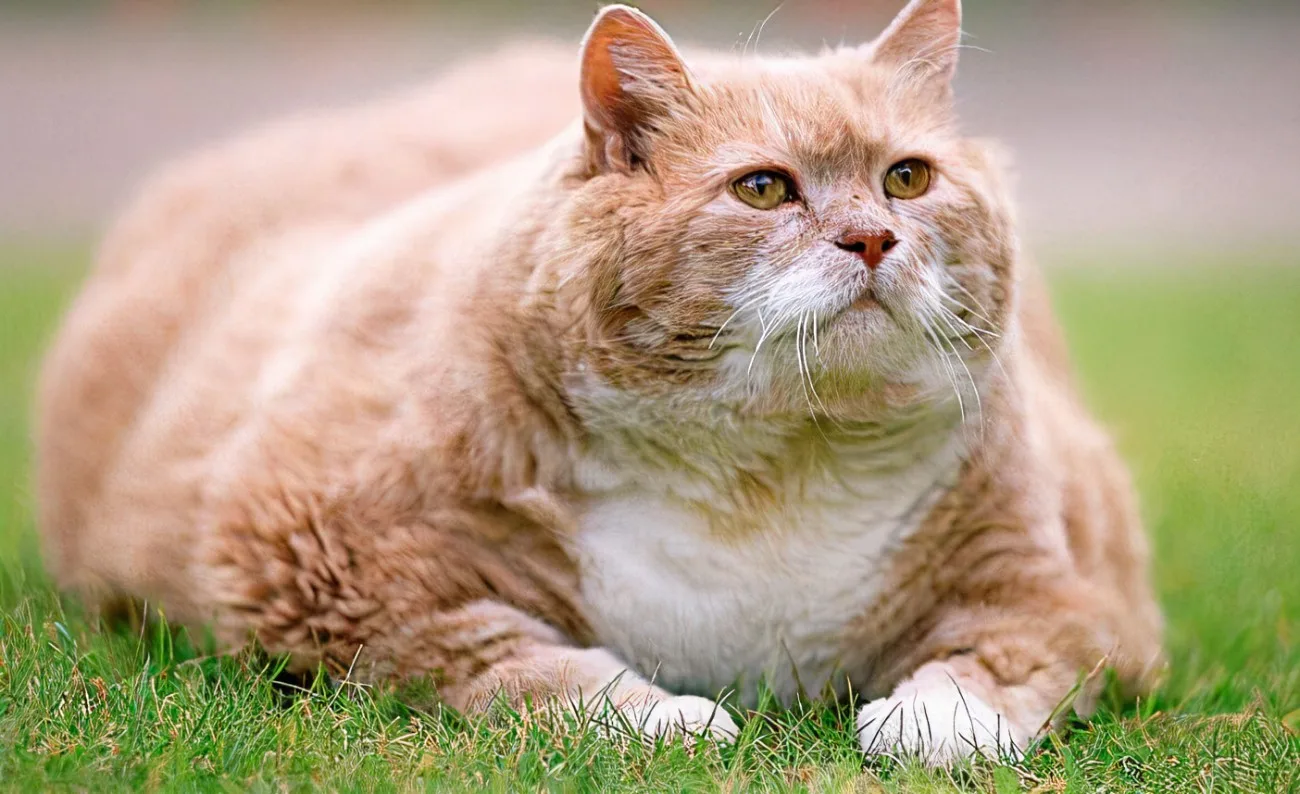Introduction: The Alarming Rise of Cat Obesity
Cats have long epitomized elegance and agility. Their streamlined as well as lean physiques allow for precise hunting and graceful leaps. However, a concerning trend has emerged – obesity in cats in recent years. What was once a rarity has now become a global problem affecting feline populations worldwide. In this article, we delve into the factors contributing to cat obesity, its consequences, as well as viable solutions.
The Root Causes of Feline Obesity
Obesity is characterized by an excessive accumulation of body fat. It poses significant health risks to cats. Just like humans, cats gain weight when their calorie intake exceeds their calorie expenditure through physical activity. The primary culprits behind feline obesity are:
Overfeeding:
Several cat owners unwittingly feed their pets excessive amounts of high-calorie commercial cat food. This lack of awareness regarding their pets’ nutritional needs can lead to unintentional overfeeding which may result in gradual weight gain over time.
Lack of Exercise:
Cats are natural hunters. They are designed for physical activity. However, domesticated cats often face limited opportunities for exercise, particularly indoor cats. This can hinder their ability to maintain a healthy weight.
Unhealthy Dietary Habits:
Incorporating unhealthy snacks and table scraps into a cat’s diet can contribute to obesity due to their high fat as well as calorie content.
Free Feeding:
Allowing cats to have constant access to food can lead to grazing throughout the day, increasing their caloric intake. This practice can be detrimental, especially for less active cats.
Hormonal Factors:
Neutering or spaying can alter a cat’s metabolism as well as hormonal regulation. This could potentially lead to weight gain if dietary and exercise adjustments are not made.
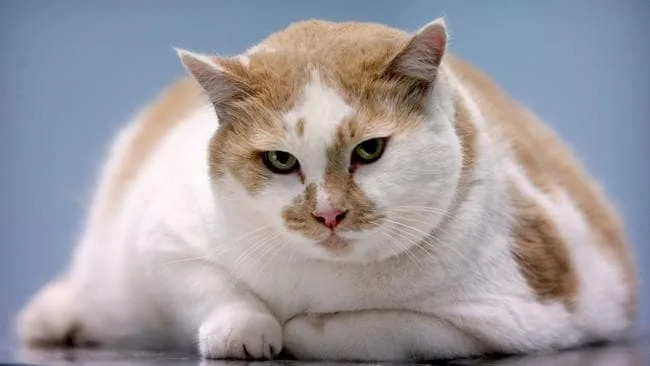
The Consequences of Feline Obesity
Feline obesity can have severe repercussions on a cat’s overall well-being, including:
Diabetes:
Obese cats are at a heightened risk of developing diabetes mellitus. It is a chronic condition that affects blood sugar regulation. This can lead to complications like kidney disease.
Joint Problems:
Excess weight places stress on joints, potentially leading to arthritis, reduced mobility, as well as difficulty in activities like jumping or grooming.
Heart Disease:
Obesity significantly increases the risk of heart disease in cats. It causes the heart to work harder and leads to hypertension, heart murmurs, as well as other cardiovascular issues.
Respiratory Issues:
Excessive body fat can compress the lungs. This can make it difficult for obese cats to breathe, resulting in respiratory distress as well as decreased oxygen levels.
Decreased Lifespan:
Obesity reduces a cat’s lifespan by increasing the likelihood of developing various diseases, thereby diminishing their overall quality of life.
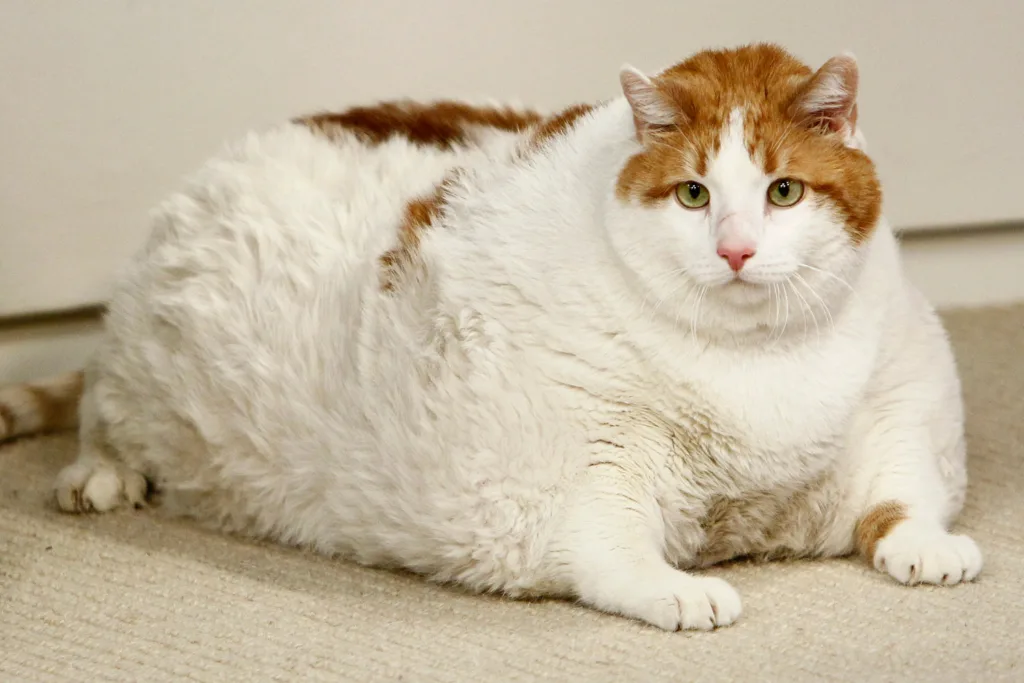
Effective Solutions for Feline Obesity
Addressing feline obesity requires a multifaceted approach involving physical activity, dietary, and behavioral adjustments. Here are some recommended remedies:
Balanced Diet:
Consult with a veterinarian to determine the right diet based on your cat’s breed, age, and activity level. Accurately measure food portions as well as avoid overfeeding. Consider incorporating high-quality, low-calorie cat food into their diet.
Portion Control:
Use portion-control strategies, such as set mealtimes and refraining from free feeding. To prevent consuming excessive amounts of calories, avoid giving pets table scraps or snacks with plenty of calories.
Regular Exercise:
Use interactive toys, puzzle feeders, and laser pointers to create opportunities for exercise. To encourage activity, think about putting up climbing walls or cat trees.
Environmental Enrichment:
Utilize perches, hiding spots, and scratching posts to create a fascinating habitat. This promotes natural behaviors, lessens boredom, and lessens overeating brought on by stress.
Veterinary Guidance:
Regular veterinary check-ups are essential to monitor your cat’s weight and overall health. Veterinarians can offer tailored advice, recommend weight loss programs, and address any underlying medical conditions contributing to obesity.
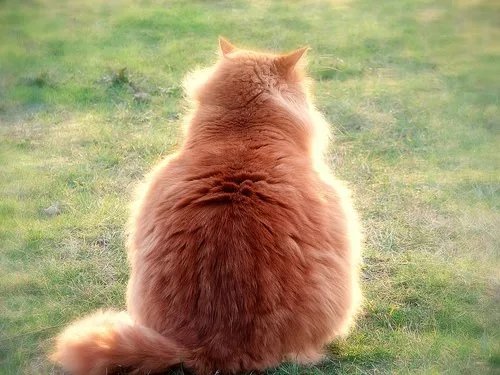
The Importance of a Balanced and Species-Appropriate Diet
A balanced as well as species-appropriate diet offers numerous benefits to feline health. It provides essential nutrients, supports the immune system, and reduces the risk of chronic diseases like heart disease. Diets made specifically for each type of animal promote optimum health, digestion, and energy levels in that species.
Specialized Weight Management Diets
Manufacturers of pet food and doctors have created specialized weight-management diets for cats to fight obesity. These diets encourage weight reduction or weight maintenance while putting an emphasis on a balanced diet. They generally consist of moderate portion sizes, an increased protein intake, more dietary fiber, and vitamins that are crucial for fat metabolism.
Overcoming Challenges and Ensuring Long-term Success
Cats who are fascinated with food demand patience and consistency in handling. Stress and resistance might be produced by rushing diet or exercise adjustments. Setting up a regular eating and exercise plan, combined with engaging activities, might assist in shifting their attention away from food and toward energizing mental and physical activity.
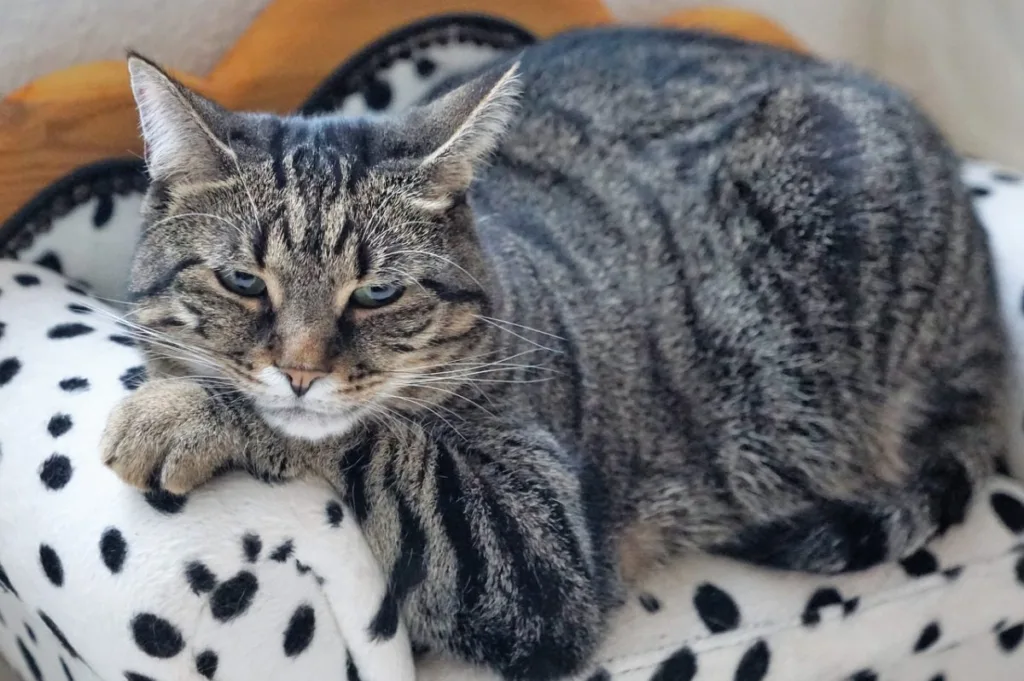
In Conclusion
The issue of cat obesity is one that needs to be addressed promptly. For cat owners to prevent and manage this condition, it is essential to understand its causes, effects, as well as potential treatments. We can support our feline friends in maintaining a healthy weight and leading meaningful lives by offering balanced food, encouraging regular exercise, ensuring portion management, and enriching surroundings. Keep in mind that a happy cat is a healthy cat! Discover more by connecting with our team!
Thank you for reading this post, don't forget to subscribe to our free newsletter
!
